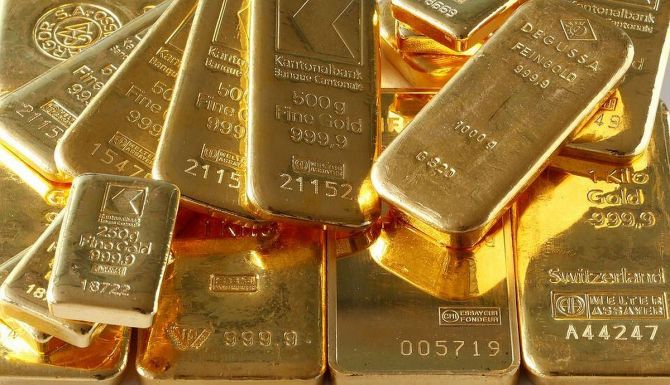Samvat 2080: A year of hope for industrial and precious metals
The new Samvat 2080 is viewed as a year of hope for industrial and precious metals.
A key reason is the expectation of US interest rates peaking, followed by a reduction in the coming months.
Regarding crude oil, its trajectory depends more on how the situation unfolds in West Asia.
According to Nigam Arora, a US-based algorithm analyst and author of The Arora Report, “Although higher interest rates are not favourable for the yellow metal, gold has been bought on hopes that the US Federal Reserve (Fed) is done with increasing rates and will cut rates in 2024.”
So far, the rally in gold prices, driven by conflict in West Asia, is not sustaining because the US appears to have deterred Iran from escalating the conflict through its proxies.
Arora adds, “Speculative fever is building up in Bitcoin again in anticipation of the US Securities and Exchange Commission allowing spot Bitcoin exchange-traded funds.
“Some of the money that would normally flow into gold is flowing into Bitcoin.”
“Our gold ratings are neutral in the short term but positive in the medium and long term.
“Gold is expected to move in a range of $1,800 to $2,400 per ounce in 2024,” Arora adds.
Base metals prices, in general, have remained suppressed for the past two years, but Samvat 2079 did see some recovery in leading metals.
The slowdown in China was a major reason, aided by economic uncertainty globally and conflicts in West Asia.
Metal prices began the year (Samvat 2079) with hope as China finally removed movement restrictions.
But that did not materialise into an increase in demand.
Gnanasekar Thiagarajan, director of Commtrendz Research, a risk management firm, said, “This prompted China to come up with an (economic) stimulus, which has only put a floor to prices.
“On the external markets, the Fed’s rate hikes throughout 2023, except for the past few months, only worsened sentiment.
“Now, there is some hope that US rates have peaked as incoming economic data suggests weakness ahead, and more hikes could push the economy towards a recession, which was avoided last year.”
With rates near peak and governments expected to aid demand, metal prices should also get support. Other reasons should help prices.
Explaining the reasons for his optimism for metals, Thiagarajan said, “Presently, mines are feeling the pinch of extended periods of low prices and resorting to production cuts, helping in a supply-driven recovery.
“Also, the long-term demand for certain metals that play a huge role in alternative energy transformation is still intact, and no fresh capacities have been added.”
“We expect a positive year ahead for metals on the back of a supply-driven recovery.
“Copper, zinc, and aluminum are the favourites,” he said.
The optimistic outlook for gold and industrial metals, however, may not spill over to the energy segment.
Oil prices are down on a year-on-year basis in the recently ended Samvat.
During the year, Saudi Arabia, in cooperation with Russia and the United Arab Emirates, was able to push up oil prices by cutting oil production.
According to media reports, later, the word leaked out of Joe Biden’s plan that would have given Saudi Arabia civilian nuclear technology and security guarantees in return for a peace deal with Israel.
This caused oil prices to fall.
According to Arora, “The simple fact is that the oil demand is less than the production capacity in the world at this time.
“The demand is low mostly due to the slower economic growth in China.”
When Hamas attacked Israel, it caused oil to spike again because of the fear of a wider West Asian conflict.
Initially, there was fear that Iran, through its proxies, primarily Hezbollah in Lebanon, would open a second front in northern Israel.
Anticipating this Iranian action, the US sent two aircraft carriers and a nuclear submarine to deter Iran.
“Our sources indicate that Iran has decided it is not worth fighting the US to help Palestinians.
“And, this has caused oil prices to fall again,” said Arora.
“Our oil ratings are neutral for the short term, negative for the medium term, and negative for the long term except for an escalation of the West Asian conflict or a stronger economy in China.
Depending on what happens in West Asia, Brent crude is expected to move in the range of $71 to $115 per barrel,” he said.
Thiagarajan is also bullish on gold.
He said, “With the dollar at a possible peak due to a pause in rate hikes, optimism in bullion is again on the rise.
“We expect gold to test $2,300 (Multi Commodity Exchange of India: Rs 67,000-68,000) at least in 2024 as the inflation-adjusted price is already above $2,400 presently.”
Source: Read Full Article
